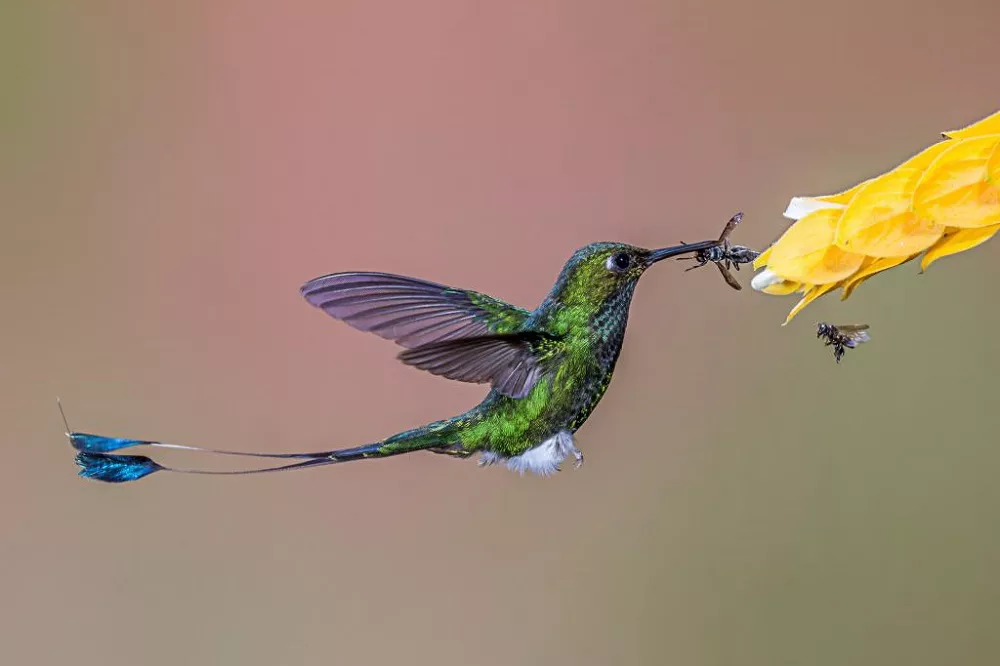The Praying Mantis is a fascinating insect that has captured the attention of scientists and nature enthusiasts alike. While they are known for their unique appearance and hunting abilities, there is a common question that many people ask: do praying mantises eat hummingbirds? In this article, we will dive into the profession of the Praying Mantis and explore whether or not they have the ability to catch and eat hummingbirds.
What is a Praying Mantis?
Before we delve into the question at hand, let’s first take a closer look at the Praying Mantis itself. The Praying Mantis is an insect known for its elongated body and long, slender legs. They are typically green or brown in color and are often found in gardens, parks, and other outdoor areas.
The Praying Mantis is a predatory insect, meaning it feeds on other insects and small animals. They are known for their unique hunting technique, which involves waiting patiently for their prey to come within striking distance before quickly grabbing and devouring it. This technique has made them a popular subject of fascination for many people.
Can Praying Mantises Eat Hummingbirds?
Now that we understand what a Praying Mantis is, let’s address the question at hand: can they eat hummingbirds? The short answer is yes, although it is relatively rare for a Praying Mantis to successfully catch and eat a hummingbird.
Hummingbirds are fast, agile birds that are difficult to catch, even for larger predators like hawks and falcons. While Praying Mantises are skilled hunters, they are not typically fast or agile enough to catch a hummingbird in flight. However, if a hummingbird were to land within striking distance of a Praying Mantis, it is possible that the Mantis could grab and eat it.
What Do Praying Mantises Normally Eat?
While it is possible for a Praying Mantis to eat a hummingbird, it is not a common occurrence. So what do they normally eat? Praying Mantises feed primarily on other insects, including moths, crickets, grasshoppers, and flies. They are also known to eat spiders and other small animals.
Praying Mantises are opportunistic hunters, meaning they will eat whatever prey is available to them. They are especially attracted to insects that are attracted to light, such as moths and other nocturnal insects. This makes them a valuable asset in gardens and outdoor areas, as they can help control insect populations naturally.
How Do Praying Mantises Hunt?
As mentioned earlier, Praying Mantises are skilled hunters that use a unique hunting technique. They typically wait patiently for their prey to come within striking distance before quickly grabbing and devouring it. They are able to blend in with their surroundings, making them difficult for prey to spot until it is too late.
Once a Praying Mantis has spotted its prey, it will stalk it carefully, moving slowly and deliberately to avoid detection. If the prey gets too close, the Mantis will strike out with its long front legs, which are equipped with spines designed to grip and hold onto prey. Once the prey is caught, the Mantis will begin to devour it, starting with the head and working its way down to the rest of the body.
Conclusion
While it is rare for a Praying Mantis to catch and eat a hummingbird, it is possible under certain circumstances. However, Praying Mantises primarily feed on other insects and small animals like spiders. They are skilled hunters that use a unique hunting technique to catch their prey, making them a valuable asset in controlling insect populations in gardens and other outdoor areas. The next time you see a Praying Mantis lurking in your garden, take a moment to appreciate this fascinating and important predator.


 Facebook
Facebook  Instagram
Instagram  Youtube
Youtube 